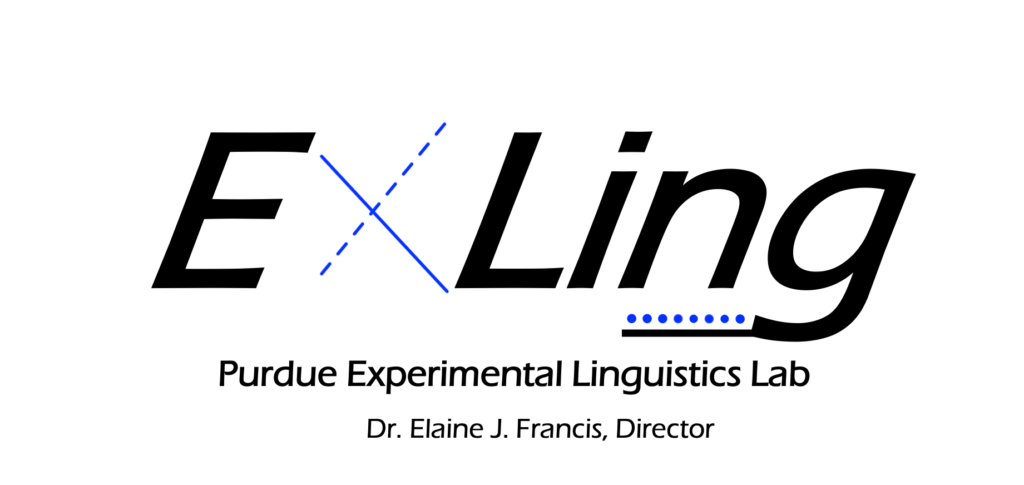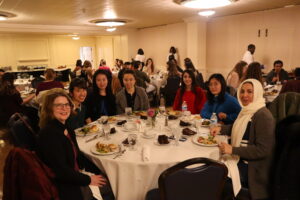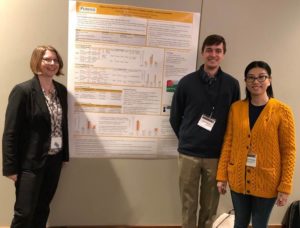
Welcome to Purdue Experimental Linguistics Lab (ExLing)
Our lab is located on Purdue’s campus in Stanley Coulter Hall. This space is shared with the Crow (Corpus & Repository of Writing) team, led by Dr. Bradley Dilger. Our research deals with syntax and its interfaces with semantics, discourse information structure, and language processing in production and comprehension. Some of our goals are as follows:
- to identify the various factors that contribute to the realization of grammatical alternations—sentence types that differ in structure but overlap in usage
- to explore the relation between grammar and performance, in particular the hypothesis that processing pressures in production and comprehension contribute to the development of grammatical conventions
- to understand how the similarities and differences among the sentence types that alternate with each other are best represented within a theory of grammar
- to understand similarities and differences in the processing and grammatical representation of L1, L2, and heritage language varieties
- to provide a deeper understanding of the relation between various types of linguistic evidence, especially acceptability judgments, and their theoretical interpretations
We address these issues using a variety of experimental methods, including acceptability judgment tasks, forced-choice preference tasks, structural priming tasks, elicitation tasks, response time measurements, and quantitative corpus analyses.
We have recently published work dealing with English (L1 and L2), Cantonese, Mandarin (L1, L2, and heritage), and Turkish.
Lab members make use of a variety of theoretical tools, combining insights from generative and cognitive approaches. Recent research has been informed in particular by Cognitive Construction Grammar (Goldberg), Simpler Syntax (Culicover & Jackendoff), Performance-Grammar Correspondence Hypothesis (Hawkins), Production-Distribution-Comprehension theory (MacDonald), and Thinking for Speaking Hypothesis (Slobin).

